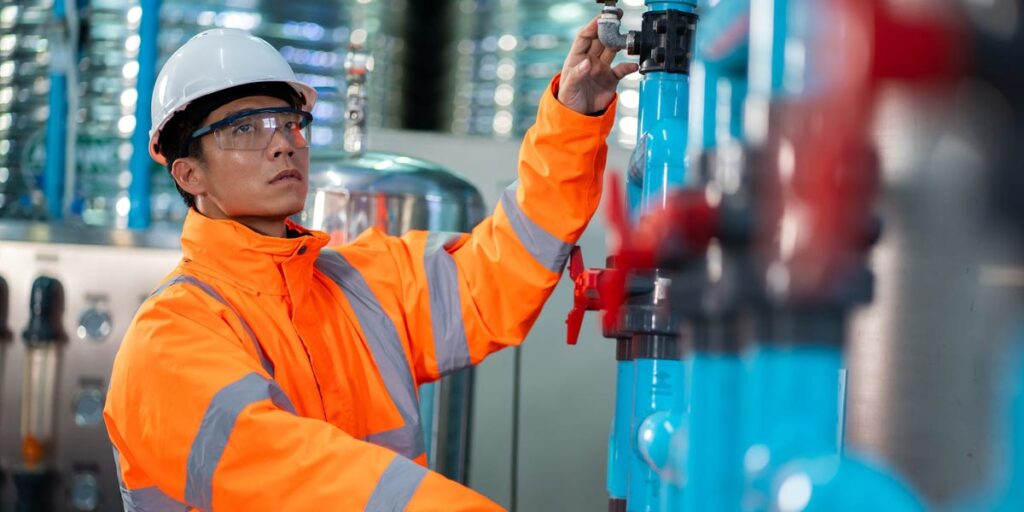- Ecolab manages water-purification and water-treatment systems.
- The company, which has been around for a century, uses AI to inform new projects.
- This article is part of “CXO AI Playbook” — straight talk from business leaders on how they’re testing and using AI.
For “CXO AI Playbook,” Business Insider takes a look at mini case studies about AI adoption across industries, company sizes, and technology DNA. We’ve asked each of the featured companies to tell us about the problems they’re trying to solve with AI, who’s making these decisions internally, and their vision for using AI in the future.
Ecolab, a company headquartered in St. Paul, Minnesota, focusing on water management, hygiene, and infection prevention, works across 40 industries. Tens of thousands of its associates help optimize water use and maintain safe water environments for millions of customers in more than 170 countries.
Situation analysis: What problem was the company trying to solve?
Kevin Doyle, Ecolab’s chief digital officer, told Business Insider that while Ecolab has deep institutional knowledge, digging into it to help clients can sometimes be tricky. “We’ve got water expertise that we’ve had for 100 years and have been out working with clients and customers assessing those operations and making recommendations” based on that history, he said.
Ecolab’s business involves assessing a client’s operations to understand their needs and challenges. Those findings are then used to develop plans to drive water and energy savings through tailored programs that include science-based chemistry, digital insights, and extensive expertise.
Ecolab’s associates — generally chemical engineers — carry out these assessments and make recommendations to customers. Doyle said decades-old recommendations could be valuable for clients’ current decision-making, but only if the company has access to them.
“That could have been lost on that person’s hard drive or in that person’s mind only,” he said. “What’s now happening is it’s documented in a repository of data that we’re then able to serve up” to associates using generative AI.
Key staff and partners
Ecolab’s AI acceleration lab initiated the project, which is now used by thousands of employees working directly with customers and uploading data to the system. Doyle said those field associates also use generative AI to analyze information stored in the company’s existing filing systems.
AI in action
The system started with a mobile application and a recommendation screen, and a chatbot was added later, Doyle said. “We could see either a recommendation based on best practices or what was contained in a knowledge repository, or somebody could ask a question, like, ‘I’m trying to install water meters on this size pipe, what type of meter should I order?'” he said.
Adopting generative AI means Ecolab’s representatives can harness information and insights from clients around the world.
“Maybe it’s another person in southeast Iowa who goes into a similar-type plant, they have a similar customer with similar characteristics,” he said. “It will make a recommendation based on the AI that will say, ‘You could implement these programs and projects,’ or ‘Your peers have done this to create value: Is it something that’s interesting to you?'”
Did it work, and how did leaders know?
Doyle said Ecolab had seen benefits from integrating generative AI in customer outreach, advisory, and briefing processes.
“It has enabled those out in the field to make decisions and ensures their on-the-ground insights are not lost within the organization,” he said.
“We’ve seen increases already in the early stages of that program in the hundreds of millions of dollars of value creation and value potential,” he added.
Doyle said AI will help the company make quicker decisions, which means “our existing team will be able to serve more customers and deliver greater value.”
What’s next?
Doyle said Ecolab’s AI acceleration lab was testing further ways to use generative AI. “We’re trying to apply that to even broader knowledge sets and certainly across all of our businesses,” he said, referring to firms within the 40 industries Ecolab serves. Those broader knowledge sets include the nuanced processes in each industry, such as an associate’s experience with supporting cooling water systems or identifying product quality issues.
By applying AI to new data, Doyle said they’re able to take in more information to “get our people to the most impactful locations, whether that’s to create value through a project or to fix something that’s not operating as it should and causing other problems.”
We want to hear from you. If you are interested in sharing your company’s AI journey, email jhood@businessinsider.com.
Read the full article here


